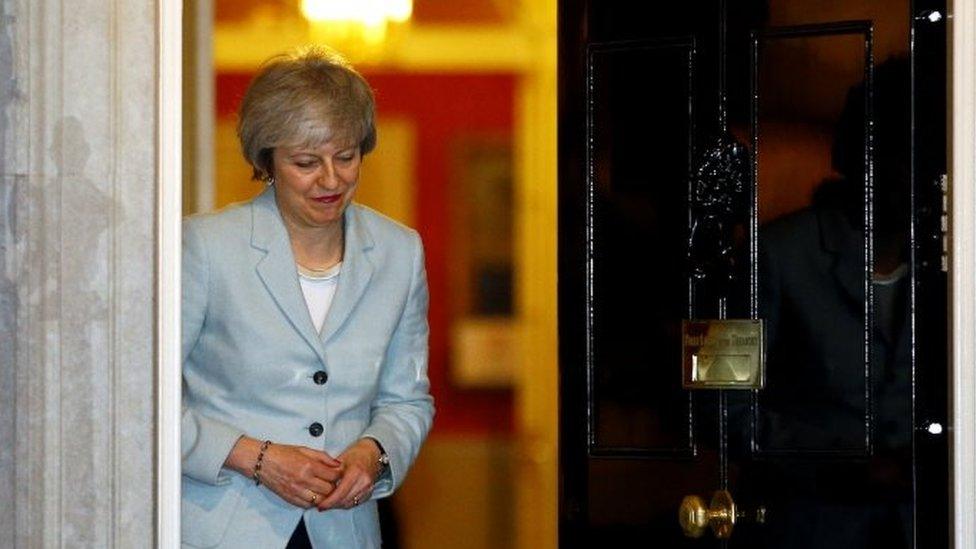Brexit: Will there be a resolution to months of indecision?
- Published

Look away now if you are of a nervous disposition.
This week's Brexit votes may not come to much.
The prime minister is essentially asking for more time to get something to show for her promise of changes to the controversial backstop.
That might mean that she's back before the end of this month with something concrete to vote on.
Or it may well not.
I know that sounds nebulous, a word you might choose to use.
But there's a building impression in Westminster, and in Brussels, that there simply won't be a resolution to these months of indecision until weeks before, maybe even days before we are due to leave (that's why some cabinet ministers believe that, even though it's not desirable, the government may end up asking to extend the whole process as we discussed here before).
It was hard to find anyone in Brussels last week who believed that they would offer any crumbs to the prime minister until the final, final moment when what was described to me as a "facesaver", will indeed be found.
And at the start of this Westminster week, it's hard to find anyone in Westminster who is confident that there will be any ending to the drama much before the end of March.
There is a summit with EU leaders where the prime minister will gather with her counterparts seven days before the departure date of 29 March.
And while it seems like the kind of kamikaze politics the UK doesn't tend to do, traditionally at least, there is growing expectation, horrific to some, exciting to others, that the prime minister may well not come back with her final deal that she wants them to vote on until after that.
As one senior MP suggested today, "imagine the mood in the house" that night.
Cynics would suggest that has for months now been Theresa May's dastardly plan - run the clock as low as she can - and allow the pressure of time to build and build, until it's unbearable.
MPs will almost vote, so the theory goes, for anything then, because they can't stand the prospect of the turmoil of leaving without a formal deal done.
And shortly before, the government will have eked out some new legal verbiage from the EU that gives an impression of a time limit, that the DUP and the Eurosceptics will be challenged to dispute.
Having watched every twist of this story, I'm not so sure this is a real plan that's long in the making.
It seems the accident of where things are now, rather than the design of where Number 10 might have hoped to be.
If Number 10 had been able to conclude all of this already, it seems to me they would have done so, eagerly.
Some MPs also report a growing mood among their constituents just to get on with it, even if that means leaving without a deal.
But the politics, or as their many critics would have it, Number 10's mishandling of the politics, have made getting things sorted at a much earlier date just impossible.
And now there is building expectation that the power of the clock is the strongest muscle that Number 10 has to flex.
That's why what happens in the Commons in the next couple of weeks, that could change that timetable matters so much.
We are still on the same merry-go-round, we may be going faster and faster, but it's not completely possible to tell when the music will actually stop.